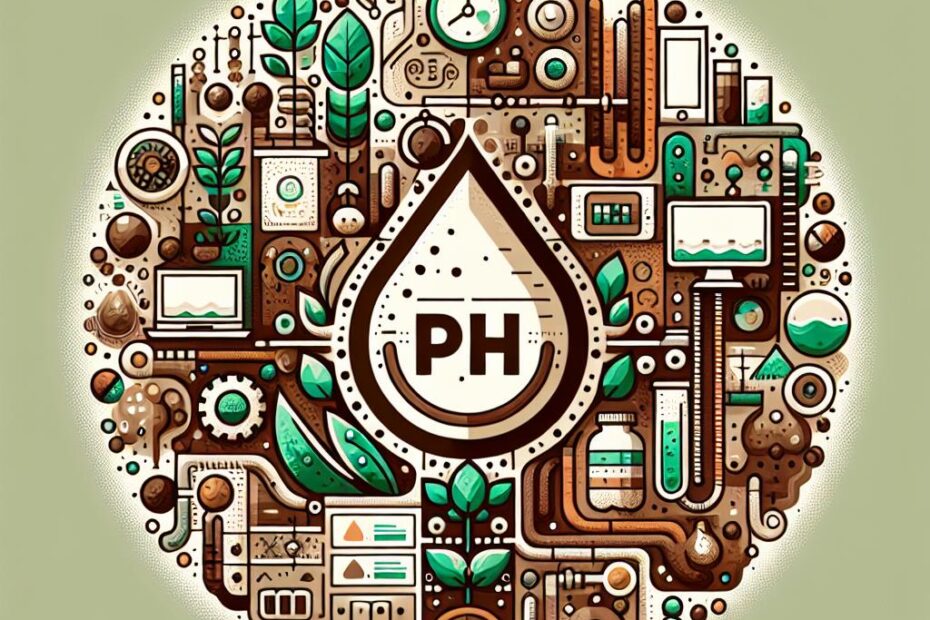Title: The Importance of Soil pH in Gardening: Enhancing Plant Health and Growth
Introduction:
Soil pH is a crucial factor that affects the health and growth of plants. The pH level of the soil refers to its acidity or alkalinity on a scale ranging from 0 to 14, with 7 being neutral. Understanding the importance of soil pH in gardening is essential for maintaining optimal conditions for plant growth. In this article, we will explore the significance of soil pH, its impact on plant nutrition, and how to manage and adjust pH levels for healthy and thriving plants.
Why Soil pH is Important:
-
Nutrient Availability: The pH level of the soil directly influences the availability of essential nutrients for plants. Different nutrients are most readily available to plants at specific pH levels. For example, acidic soils (pH below 7) tend to have higher levels of iron, manganese, and aluminum available, while alkaline soils (pH above 7) may have higher levels of calcium, magnesium, and phosphorus. Maintaining the right pH level ensures that plants can access the nutrients they need for healthy growth.
-
Microbial Activity: Soil pH also plays a role in the activity of beneficial microbes in the soil. Many soil microorganisms that contribute to nutrient cycling and plant health thrive in specific pH ranges. A balanced pH level promotes a healthy soil ecosystem, supporting the growth of beneficial bacteria and fungi that aid in nutrient uptake and plant defense against diseases.
-
Plant Health and Growth: The pH level of the soil directly impacts plant health and growth. When soil pH is too high or too low, plants may exhibit nutrient deficiencies, stunted growth, yellowing of leaves, or other symptoms of stress. By maintaining the optimal pH level for specific plants, gardeners can ensure that their plants receive the nutrients they need to thrive and reach their full potential.
How to Manage Soil pH:
-
Testing Soil pH: Before adjusting soil pH, it is essential to test the current pH level of your soil. Soil testing kits are available at garden centers or through agricultural extension services. Testing should be done in different areas of your garden, as pH levels can vary across different soil types.
-
Adjusting Soil pH: Depending on the test results, you may need to adjust the pH level of your soil. The most common way to lower soil pH is by adding sulfur or organic matter like compost. To raise pH, lime can be added to the soil. It’s essential to follow dosage recommendations and re-test the soil after a few weeks to monitor changes in pH.
-
Choosing Plants for Your Soil: Understanding the pH requirements of different plants can help you select varieties that are well-suited to your soil conditions. Some plants prefer acidic soil, while others thrive in alkaline soil. By matching plants to your soil pH, you can ensure that they receive the right nutrients for healthy growth.
Practical Tips for Soil pH Management:
- Regularly test soil pH to monitor changes and adjust as needed.
- Use organic amendments like compost to improve soil structure and pH balance.
- Mulch your garden beds to conserve moisture and maintain a stable pH level.
- Rotate crops to prevent soil depletion and maintain soil pH balance.
Conclusion:
In conclusion, soil pH is a critical factor in gardening that directly impacts plant health and growth. By understanding the importance of soil pH, gardeners can create optimal conditions for their plants to thrive. Testing soil pH, adjusting pH levels as needed, and choosing the right plants for your soil are essential steps in maintaining a healthy garden. By following practical tips for soil pH management, gardeners can ensure that their plants receive the nutrients they need for vibrant growth and abundant harvests. Remember, a balanced soil pH is the foundation for a successful garden!
